疑问句(一般疑问句、特殊疑问句)公开课教学课件教程文件
小学英语语法课件-疑问句 (共29张PPT) 全国通用
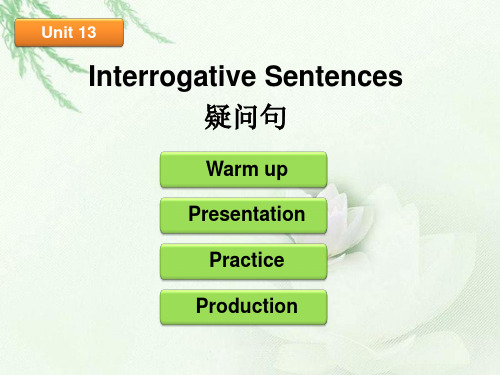
Presentation Grammar Box
Presentation Grammar Box
Presentation Grammar Box
Presentation Grammar Box
Presentation Grammar Box
Presentation Grammar Box
A. What
B. When
C. Where
D. Which
Production Quiz
Production Quiz
Practice Oral Practice
选择正确的答语。
A. By car. B. Yes, she has. C. Yes, I do. D. It’ s 10 dollars. E. He is my brother.
( E) 1. Who is he? ( A) 2. Do you go home by car or by subway?
Practice
Exercise 2
aren't you
Practice
Exercise 3
Practice
Exercise 4
5
PPrraaccttiicceeI Exercise 1
特殊疑问句 一般疑问句 一般疑问句 一般疑问句 反意疑问句
Practice
Exercise 2
aren't you didn’t she
My grandma has been to many places, _h_a_s_n_’_t _s_h_e_? Lily and Lucy will go to school next week, _w__o_n_’_t _th_e_y__?
一般疑问句和特殊疑问句等句型联系上课讲义

一般疑问句和特殊疑问句等句型联系一般疑问句和特殊疑问句一、一般疑问句be动词(am, is are)肯定:Yes, 主语+引导词引导词 can/will/should等情态动词答语do/does/did助动词否定:No, 主语+引导词+not二、特殊疑问句(即由特殊疑问词引导的疑问句)特殊疑问词有:when, where, who, what, whose, why, howbe动词(am, is are)特殊疑问词+ can/will/should等情态动词 + 主语 + 谓语 + 其他 do/does/did助动词改写否定句型be动词 + notcan/will/should等情态动词 + not主语 + do/does/did + not + 谓语动词感叹句的表述What + a/an + 形容词 + 名词例:What an interesting film!How + 形容词 + 主语 + 谓语例:How interesting the film is!补充知识点动词原形如:buy(买)1、be going to + 地点如:the park打算 ... 时间如:on Monday2、want to + 动词原形表示“想要...”3、在......转弯用介词“at”, 如turn left at.../turn right at4、like + V-ing, 如:He likes playing basketball.5、by + 交通工具,表示交通方式。
6、go to + 地点,表示“去...”; get to + 地点,表示“到...”7、next to 挨着;near 在...附近; in front of... 在...前面;behind... 在...后面8、be far from... 离...远的句型转换练习题一、改成一般疑问句1、He is a student.2、She can dance.3、You like apples.二、改成否定句1、He is a student.2、She can dance.3、You like apples.三、对划线部分提问1、He goes to school by bus.2、He is a coach.3、The hospital is near the bookstore.4、I am going to the cinema tomorrow.四、改成感叹句1、The cinema is great.2、The girl is beautiful.补充实义动词动词单三形式将括号里动词的适当形式填入横线上。
小学英语语法---一般疑问句和特殊疑问句ppt课件
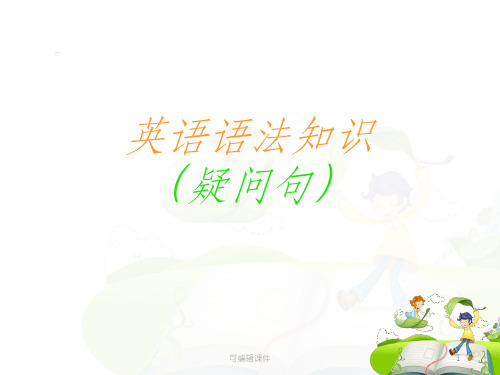
可编辑课件
4
e.g
This is Amy's bike.(一般疑问句)
Is this Amy's bike?
Yes, this is. (肯定回答)错误
No, this isn‘t. (否定回答)错误
Did you go to Beijing last weekend?
Yes, I did. (肯定回答)
2、如句子里是动词就在这些词前加 don't,doesn't,didn't
(1)主语是第一、二人称(复数)加don’t,第三人称单数加
doesn't
(2)如果是过去式就加didn't
例:I like dogs.
She likes swimming.
I don‘t like dogs.
She doesn’t like swimming.
No, I didn't. (否定回答)
I have some books. (一般疑问句)
Do you have any b可o编辑o课件ks?
5
变否定句的做法:
1、如句子里是be动词:am,is,are,was,were 就在这些词后加 not
例: He is Tom.
He is not Tom.
( B) 25. ______ tea did you have?
Two cups. • How many B. How much C. How soon D. Which
可编辑课件
15
感谢亲观看此幻灯片,此课件部分内容来源于网络, 如有侵权请及时联系我们删除,谢谢配合!
感 谢 阅
读感
谢
小学四年级英语下册一般疑问句特殊疑问句PPT课件
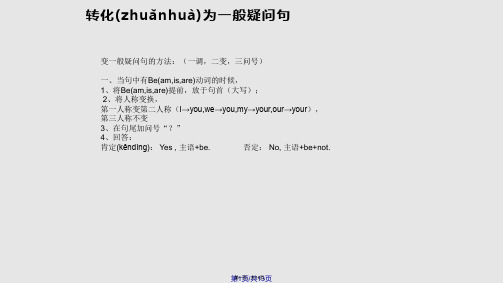
→what colour are My sister's trousers?
This orange shirt is Lulu's. →is This orange shirt Lulu's. →whose is This orange shirt. →Whose is this orange shirt?
第第5五页页,/共共141页3。页
play computer games everyday. →Do play computer games everyday. →Do play computer games everyday?
plays computer games everyday.
→Do plays computer games everyday. →Does play computer games everyday?
感谢您的观看(guānkàn)!
第第1十3三页页,/共共114页3。页
内容(nèiróng)总结
转化为一般疑问句。一、当句中有Be(am,is,are)动词的时候,。1、将Be(am,is,are)提前,放于句首(大写)。第 一人称变第二人称(I→you,we→you,my→your,our→your),。2、将人称变换(biànhuàn),第一人称变第二人称(
1.who is that boy?那个男孩是谁?2. who are you ? 你是谁?3. Who is that pretty lady?那个漂亮的女士 是谁?
1. whose bag is this? 这是谁的包? 2.whose bike is yellow? 谁的自行车是黄色的?
一般疑问句 特殊疑问句讲解(共13张PPT)
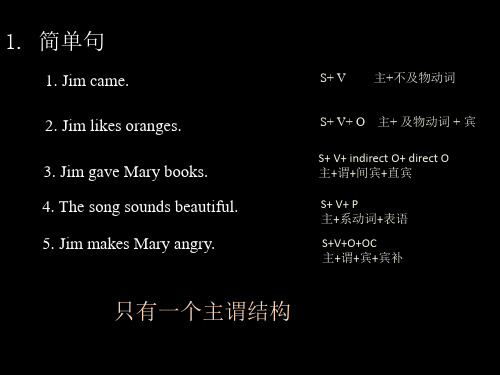
肯定回答 否定回答
Yes, 主语 + 情/be/助动词 No, 主语 +情/be/助动词 + not
特殊疑问句
询问一些具体信息,如人或事,时间,地点,原因等。
事, 时间,地点,原因等。
特殊疑问句
特殊疑问词
一般疑问句 一找二提三变
特殊疑问词
谁的 whose 谁 who 物
年龄要用 How old
找-提-变
Does he has a lot of books?
Does he have a lot of books?
变一般疑问句步骤
迷之微笑
4. I went to school yesterday.
找-提-变
Did I go to school yesterday?
Did you go to school yesterday?
what
哪里 where 何时用 when 哪个 which 如何得用 how
为何 why what time
加人物 帮助
特殊疑问词
once a year, twice a week
once, twice, three times
how often I usually go to visit my grandpa three times a month.
特词换主抄原句,三单S给谓语
变 一般疑问句 Do you have a sister?
加 特殊疑问词 Who
去 掉划线部分 Who has a sister?
4. She played table tennis yesterday.. 变 一般疑问句 Did she play table tennis yesterday? 加 特殊疑问词 What
初中英语-疑问句(一般疑问句、特殊疑问句) PPT课件 图文
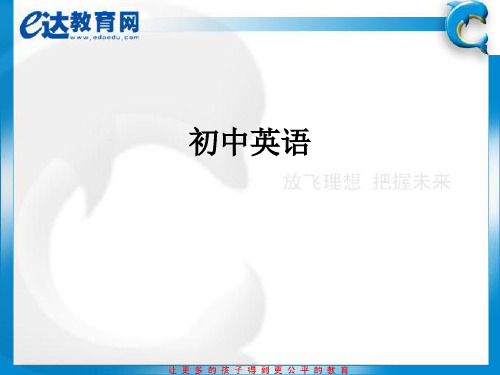
• 2.Chinese New Year this year is in February. When is Chinese New Year?
• 3.Kitty is wearing a special costume. Who is wearing a special costume?
which----Thing or person (对特定的人或事物提问)。
e.g “Which man is your English teacher?” “哪位是你的英 语老师?” “The man in white.” “那个穿着白衣服的。”
who----Person (对人提问)
e.g “Who will visit you tomorrow?” “My father.” “明天谁来看你?” “我爸爸。”
1.She is a pupil. Is she a pupil?
2. 她 是 学生。 是 她 学生 ?
2. I can see a star. Can you see a star?
3. My mother is a teacher.
Is your mother a teacher? 4. It will rain this afternoon.
flowers for your teachers?
Susan: No, I didn’t buy __a_n_y_ flowers, but I bought _so__m_e__ cards. Look!
Tom: Wow, how beautiful they are. Where did you buy them?
一般疑问句和特殊疑问句(讲义)通用版英语六年级下册

一般疑问句和特殊疑问句一般疑问句(1)概念:可以用Yes或者No来回答的疑问句是一般疑问句。
一般疑问句读的时候往往要用升调;译成汉语的时候常可以译为“......吗?”(2)结构:1、be动词+主语+其他肯定回答:Yes, ...am/ is /are.否定回答:No, ...am not./ isn’t / aren’t.例句1:Is this your English book?肯定回答: Yes,it is. / 否定回答: No,it isn't.例句2: Are these your English books?肯定回答: Yes,they are. / 否定回答: No,they aren't.2、情态动词+ 主语+ 动词原形+ 其它部分?肯定回答:Yes, ...can.否定回答:No, ...can’t.例句1:Can you speak English?肯定回答:Yes, I can. 否定回答:No, I can’t.例句2:Can he swim?肯定回答:Yes, he can. 否定回答:No, he can’t.3、助动词Do/Does+ 主语+动词原形+其他部分?肯定回答:Yes,...do/ does.否定回答:No, ...don’t/ doesn’t.例句1:Do you like flowers?肯定回答:Yes, I do. / 否定回答:No, I don’t.例句2:Does he like flowers?肯定回答:Yes, he does. / 否定回答:No, he doesn’t.(3)如何将陈述句变成一般疑问句?1、陈述句中有be动词(am, is , are等)或情态动词(can,must等)时,变成一般疑问句要将be动词和情态动词提到句首,句末加上问号即可,如果是第一人称,则要变成第二人称。
例如:She is a clever girl. → Is she a clever girl?I can swim. → Can you swim?2、句子里面含有实义动词(如like, likes, have,has, run, swim, jump等)。
通用小升初英语总复习一般疑问句和特殊疑问句讲解课件

5. She felt upset about her weight.
Did she feel upset about her weight?
1.你是1995年诞生的吗? Were you born in 1995 ?
8.Are you eating lunch? 你(们)正在吃午餐吗? Yes, I am. / Yes, we are. 是的,我(们)正在吃。 No, I am not. / No, we aren't. 不,我(们)没有在吃。
9.Is he playing chess? 他正在下棋吗? Yes, he is. 是的,他是。/ No, he isn't. 不,他没有。
4.对指人名词或人称代词提问用who 例:Li Ping is my sister. —Who is Li Ping?
5.对物主代词和名词所有格提问用whose 例:Li Ping's coat—whose coat
my father—whose father
6.对具体时间提出疑问,疑问词用when;对具体几 点钟提问,用what time 例:It's 10:00. —What time is it?
• 问时间点
2. what colour
• 什么颜色
3. what weather
• 什么天气
4. 什么学科
• what subject
5. 多少
• How many/much
6. 多长
• How long:
7. 多少钱价格
• How much
8. 多少次(问频率) • How often
- 1、下载文档前请自行甄别文档内容的完整性,平台不提供额外的编辑、内容补充、找答案等附加服务。
- 2、"仅部分预览"的文档,不可在线预览部分如存在完整性等问题,可反馈申请退款(可完整预览的文档不适用该条件!)。
- 3、如文档侵犯您的权益,请联系客服反馈,我们会尽快为您处理(人工客服工作时间:9:00-18:30)。
➢ where----Place (对地点提问) e.g “Where do you study?” “你在哪儿读书?”
“In Shanghai.” “在上海。”
➢ why-----reason (对原因提问) e.g “Why are you late?” “你为什么迟到?”
•
that time?
• Mum: It’s very cold.
• Millie: W_h_er_e__are we going to stay in Harbin?
• Mum: In Grandma’s big house.
• Millie: _W_ha_t __does Grandma like eating?
“Because I missed the bus.” “因为我没赶 上公共汽车。”
初中英语
一般疑问句 特殊疑问句 反意疑问句
一般疑问句
一般疑问句,即(yes/no)问句的改变: 1.把关键词(如:am、is、are、have、has、 can、
will等)放在句子的开头,句尾改为“?”但要 注意一、二人称的转换。 2.有实意动词的句子改问句时,在句子开头加 “Do、Does”或“Did”,原实意动词用原型。
4. Did Eddie play football?
Yes, he did. No, he did not./No, he didn`t.
特殊疑问句
(Special question)
特殊疑问句的形式:疑问代词/副 词 + 动词 be/助动词/情态动词 + 主语 + 动词。疑问代词/副词包括 what, who, which, whom, whose, when, how, why, where 等。回 答时不用yes 或no,而要根据实际 情况回答。
No, she is not./No, she isn`t. 2.Can you see a star?
Yes, I can.
No, I can not./No, I can`t.
3. Do you like English.
Yes, I do. No, I do not./No, I don`t.
1.She is a pupil. Is she a pupil?
她 是 学生。 是 她 学生 ?
2. I can see a star. Can you see a star?
3. My mother is a teacher. Is your mother a teacher?
4. It will rain this afternoon. Will it rain this afternoon?
➢ what----Activity or thing (对行为和事物提问)。
e.g . 1. “What are you talking about?” “你们在谈什么?” “We are talking about our family.” “我们在谈论我们 的家庭情况。”
2. “What is your name?” “你叫什么名字?” “My name is Wang Li.” “我叫王丽。”
➢ which----Thing or person (对特定的人或事物提问)。
e.g “Which man is your English teacher?” “哪位是你的英 语老师?”
“The man in white.” “那个穿着白衣服的。”
)
e.g “Who will visit you tomorrow?” “My father.”
1. I like English. Do you like English?
2. Eddie played football. Did Eddie play football?
一般疑问句的肯定回答、否定回答。
肯定回答:Yes,… +关键词。 否定回答:No,…+关键词+not.
1.Is she a pupil? Yes, she is.
We use ‘wh-’ questions to ask for information about someone/something.
what----activity or thing which----thing or person who----person whose----possession when----time where----place why-----reason
I am reading. I’d like this red one. He is our teacher. The bag is mine. My birthday is on 2nd May. My pen is in the pencil case. I like dancing because it is fun.
• Mum: She likes biscuits very much.
• Millie: _W_h_y __do we need that big bag?
• Mum: Because we need to take lots of things
to Harbin.
B Asking ‘wh-’ questions
Try to complete the dialogue
• Millie: _W_h_e_n __are we going to Harbin?
• Mum: On 10th February. • Millie: _W_h_at___ is the weather like in Harbin at
“明天谁来看你?” “我爸爸。”
➢ whose----Possession (对人的所有关系提问) e.g “Whose book is this?” “It is my brother’s.”
“这是谁的书?” “是我弟弟的。”
➢ when----Time (对时间提问) e.g “When will you finish your homework?”
